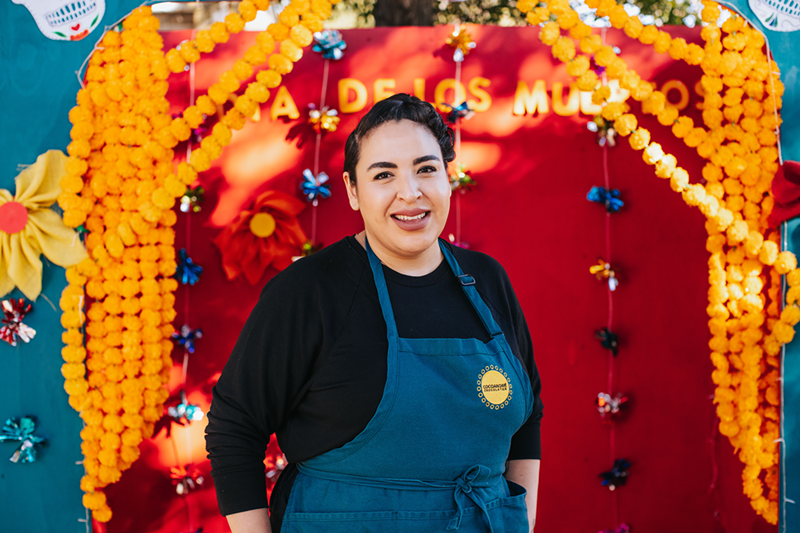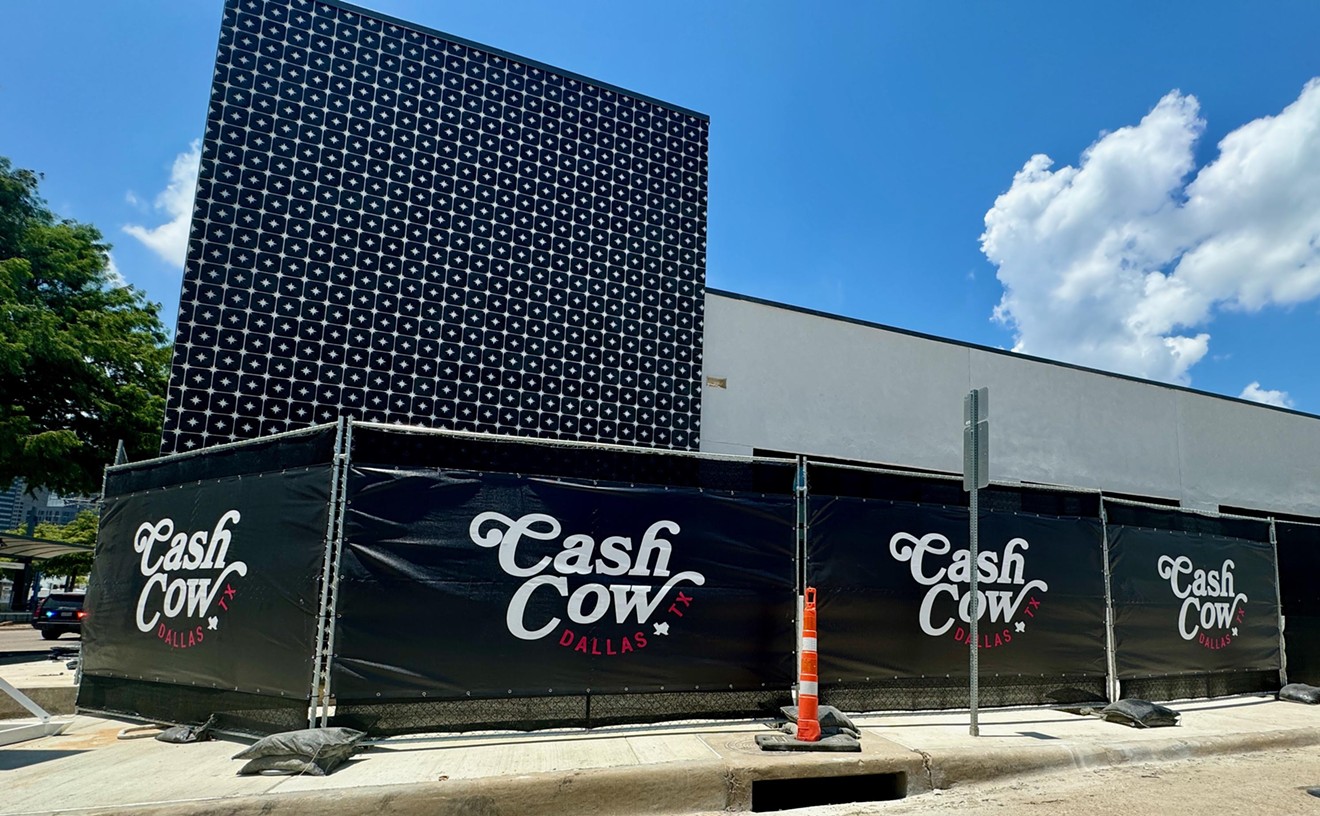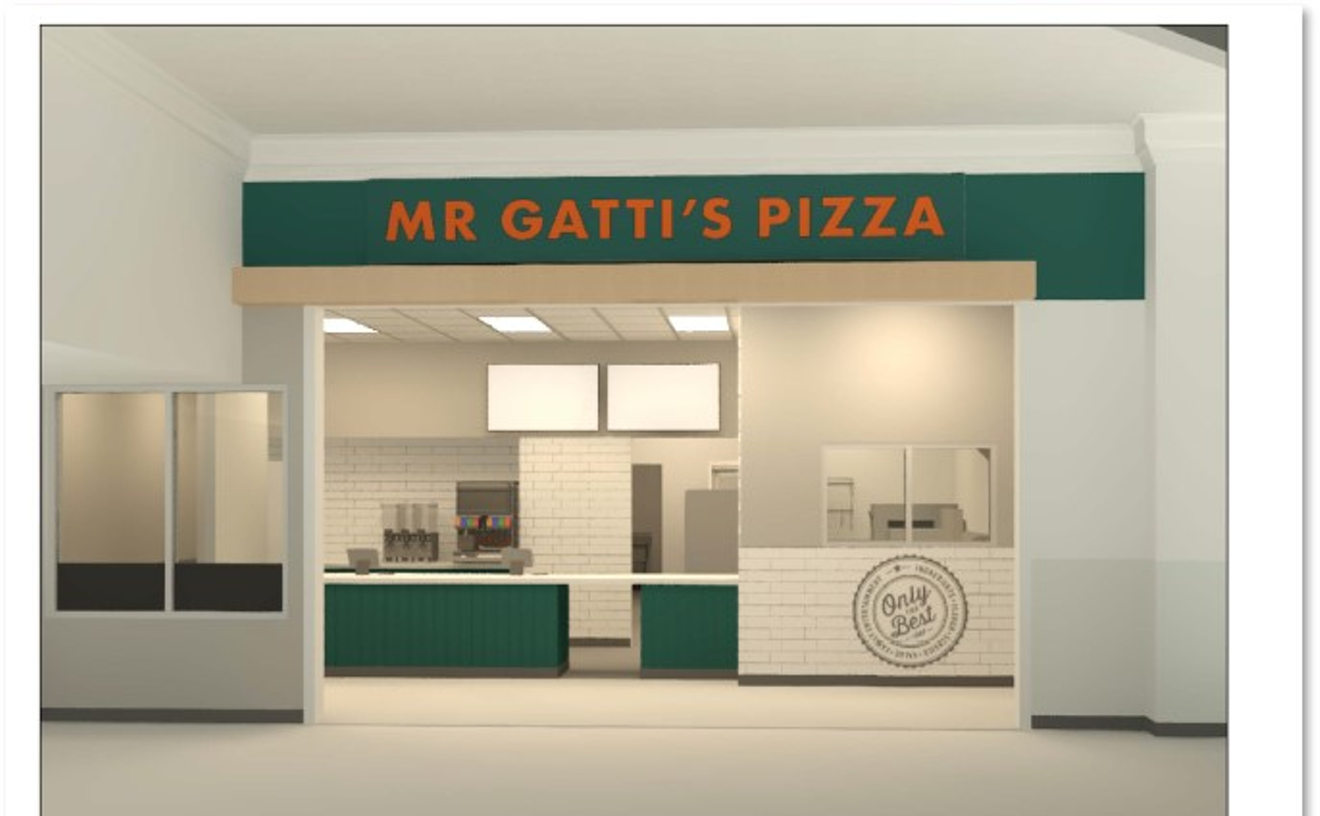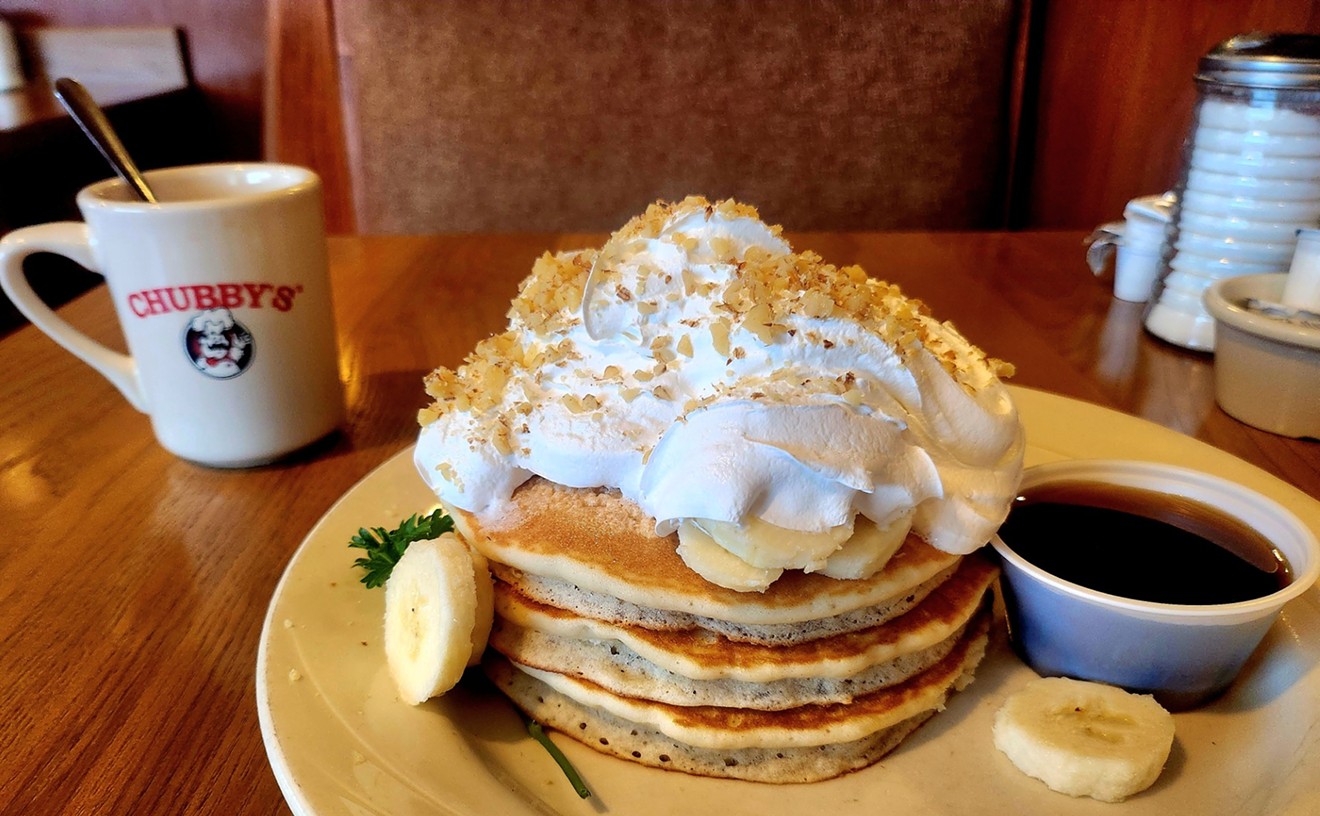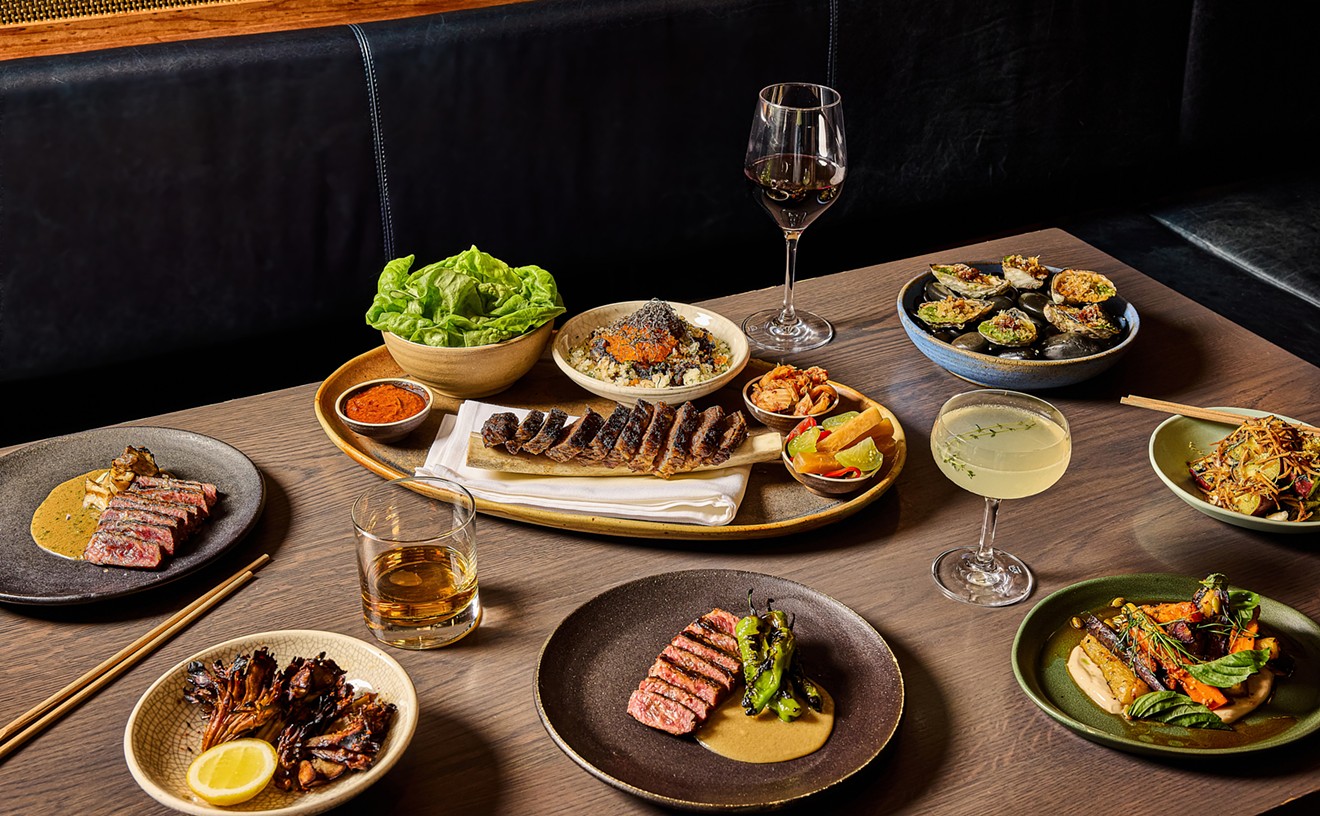Of course, they’re not. You’re actually in the new normal that’s seemingly here to stay. People are wearing masks, patio tables are spilling into parking spaces and you might be dodging groups of people taking up the wide sidewalk.
But people are there. Businesses are open. Customers are eating. The heart of the Bishop Arts District is still beating.
For CocoAndré Chocolatier, its pivot during the pandemic allowed the shop to do more than cover rent. It's seeing actual growth.
“When Lauren [Drewes Daniels] covered us in the summer, we still had our doors closed and we were making the ice cream kits to survive the summer,” co-owner Cindy Pedraza Puente said, referring to an Observer story. “It started generating more buzz and making people more aware that we were here, even though we’ve been here 11 years.”
The little shop on West Seventh Street, west of North Bishop Avenue, had closed its interior in the spring and summer and reopened its quaint little house for browsing in September. Today, the well-lit space is full of confections and plastic space dividers between the staff members and customers, the latter who must use hand sanitizer before touching the doorknob.
“I’ve just noticed our sales are a lot higher; usually our sales don’t get to the point that they are right now until like around Thanksgiving and Christmastime, and it’s crazy to see those sales marks,” she said. “Me and my husband joke about it. It took 10 years to make us feel like we’re OK right now, and we’re in a pandemic.”
CocoAndré sits central in the Bishop Arts District, its boundaries defined by the Bishop Arts Merchant Association as West Neely Street to the north, North Zang Boulevard to the east, West 10th Street to the south and North Llewelyn/Cedar Hill avenues to the west, with adjacent properties included.
On the other side of Bishop is Boulevardier, whose operator agreed with Puente that the neighborhood's infrastructure makes it easier and more comfortable to support businesses during the pandemic.
“Everything is about living, working, playing in your walkable urban neighborhood, that's why people move to Trinity Groves or Bishop Arts or Lower Greenville. ... People seem so happy to be out somewhere that it seems like everyone is just really generous with their money, even better than before,” co-owner Brooks Anderson said. “People are just flocking to the patio.
“Number one, the pandemic has been just fucking awful. ... Having said that, I have been astounded at how busy Boulevardier has been."
At this spot on West Eighth Street, they’re opening the windows for the first time. (One business operator told us she wasn’t even aware the windows could open.)
We have limited our indoor seating. We had never opened our windows before. Even in the nice weather, we would keep them closed. We got new screens for all nine of our windows, we [now] keep windows open even when it's a little chilly,” Anderson said. “We’re going to maintain ventilation as we can, keep windows and doors open, tell people to wear jackets when they come out to eat. It may be chillier than normal.”
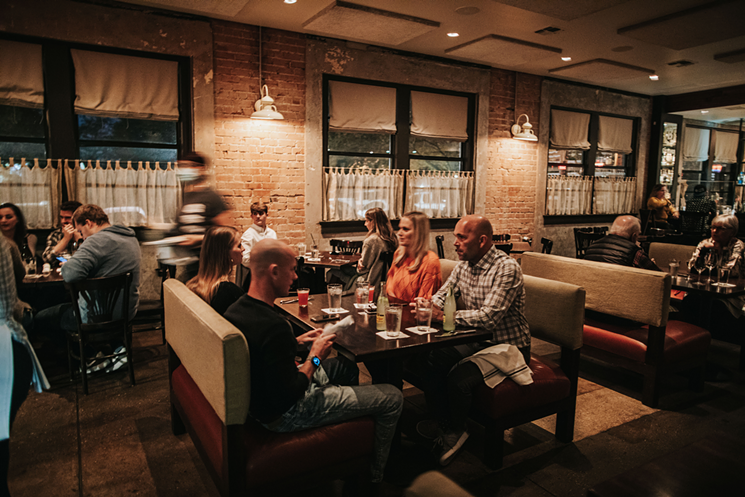
Boulevardier is keeping the windows in its space open this winter to keep air flowing for customers.
Xochitl Gonzalez
The former neighborhood spot is still that: The couple is seeing neighborhood support in the form of regular dinners and celebrations.
“It’s a comfortable building. It’s got a parking lot. It was home for a lot of people for 12 years,” Balke said.
McCombs said while people do come to Encina from the rest of the city, most faces filling the dining space are familiar.
“We had neighbors stopping in even during the construction. It’s an interesting neighborhood. Once you’re kind of in the circle of friends, it’s super close,” she said.
The couple lives in East Dallas but worked at Bolsa for years, so they have some roots in North Oak Cliff.
“Three weeks in, the patio’s pretty full. We roll up the windows and turn on the heat,” Balke said, noting more people are comfortable with the risk of dining inside when temperatures drop.
They’re looking at adding heating, but heaters are hard to come by. Another adaptation to the pandemic is takeout, something they weren’t planning on when the idea for the restaurant came about before the coronavirus hit.
“You don’t just send beef tartare,” McCombs said.
“It’s food that doesn’t travel well. … You don’t get the perceived value in takeout packaging,” Balke said.
But they’re doing it soon anyway because so many people aren’t choosing to dine in restaurants. The couple understands that, but Balke suggests changing up the dining-out routine, too.
“How about try 5 o’clock dining?” he asked.
They have some people within the neighborhood who make a habit of coming in on a weekday at that time, getting the whole patio to themselves. When it starts to fill up, they’re finished and leaving.
Balke and McCombs said neighbors are filling the dining spaces Monday through Thursday, with outside people (throughout the neighborhood, the consistent word for these, even if they’re from Dallas, is “tourists”) coming in for the weekend hours.
“You have unique restaurants and shopping over here,” Balke says, so while people may find Encina as a destination, they can also spend their time and dollars in other businesses while they’re in the neighborhood. But the main support is still the locals, whether it’s people in a nearby home or from another business.
“I think the restaurants support each other in the neighborhood, that helps, as well; it’s not as competitive, very community-minded,” McCombs said, and this was the case pre-COVID.
Brunch is still to come for the new spot, hopefully maintaining the momentum they're seeing. Right now the patio is a comfortable place to be, and being there or passing by during evenings, you’ll see plenty of people.
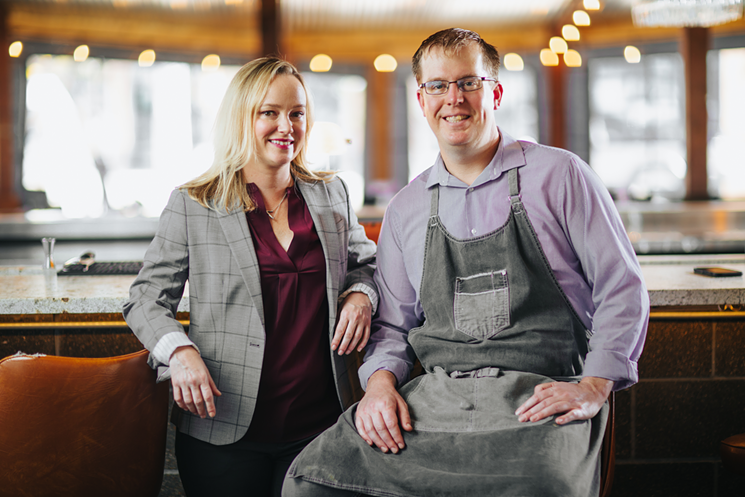
New Bishop Arts restaurant Encina took the space of the former Bolsa on Llewelyn Avenue with chef Matt Balke (right) and partner Corey McCombs (left) at the lead.
Kathy Tran
Chad West, Dallas City Council member for the area, said he feels the district is doing well as a whole, and he doesn’t see as many business closures there.
“It’s tough. We’ve been very fortunate the vast majority of our restaurants have survived,” he said. “I think it’s a combination of the perseverance that you get from entrepreneurs who are small business owners. You learn how to adapt and survive. A lot of the landlords, from what I understand, have been working with their tenants. It’s much harder to replace a tenant than to work with what’s there.”
West pointed to North Bishop Avenue, too, where restaurants have expanded outdoor seating with parklets. You can see plenty of that particularly at Eno’s Pizza Tavern and Revelers Hall, both of which were early adopters of the seating option.
On the same street, without a parklet, sits Azucar Ice Cream Co., where owner Suzy Batlle has been working throughout the pandemic to stay open every day and pay her employees.
“[Customers’] support really makes a difference, especially people in small businesses that are struggling day by day until this is over. It’s very difficult to keep their doors open. We’re not the other guys who are open when it’s convenient. I’m open every day. That’s a big difference, especially for the community,” Batlle told us in June.
As temperatures get cooler, the shop is doing more adjusting. On the fun side, customers will see more flavors, such as s’mores and sweet potato. On the logistics side, it’s changing its policy of outdoor seating only.
“We’re going to be changing the seating on the inside so we can accommodate more people inside,” she told us this month.
And as for who those people are: “It definitely feels like locals from Oak Cliff,” which is one reason they chose to put their shop in the area more than a year ago.
“It’s still beautiful. It’s still family-oriented. It’s just looking a little bit different during the pandemic, but I think of all the little communities, I think we’re still the best,” she said.
On the eastern edge of the neighborhood sits Ten Bells Tavern, a bar (though technically classified as a restaurant) that has watched development rise on West Seventh Street since it opened eight years ago.
Owner Meri Dahlke has gone through the familiar whirlwind restaurants have faced over the last eight months, but with an added twist. She was in the United Kingdom when all hell broke loose. Her 10-day trip turned into 20; she came back to a closed restaurant (and closed bar Eight Bells Tavern in Exposition Park) before reopening, doing takeout, closing and reopening again.
“We have a great group of locals who regularly come here. They saved us,” she said.
Now, they have a large patio that’s frequently where most people are, though she’s considering adding another heater. And while the patio is partially covered with a permanent structure, she’s looking at getting something sturdier for the other portion. After the Dallas City Council passed a resolution in October waiving parking requirements for covered patios through April, she and others are considering expanded outdoor seating.
When 2020 began, Dahlke was looking at Ten Bells and seeing customers flock to Deep Ellum in particular, taking their dollars with them. She’d see more tourists come in for brunch on the weekends, but the year was looking to be a time to reinvent some things. Then March hit, and they were wondering how they’d manage to keep the lights on.
It wasn’t the brunch crowd that swiftly returned, but the locals who have made Ten Bells their home bar.
“We do appreciate the people of Oak Cliff. There’s a sense of community and the support of things is strong,” Dahlke said. “We’ve had nights here that are almost pre-COVID numbers. We’ve had moments of, maybe we’ll get through this.
“I’m just really happy we’re still here. If it wasn’t for this neighborhood, I think we’d be gone.”
At the same time, Dahlke said she wonders about the fill rate of the shiny new apartments on the east side of Bishop Arts, her immediate neighbors.
In this way, Bishop Arts does look different from the east to the west. Down by Ten Bells and Krio is land filled with dense, multi-family buildings.
On the west side are homes in the Bishop Arts neighborhood and the immediate Winnetka Heights historic district. That’s one aspect Katherine Clapner points to for her own success.
Her Dude, Sweet Chocolate shop on West Eighth Street is the only storefront she has today. She announced weeks ago the permanent closing of her downtown location — something she knew was risky when she opened, even before a pandemic. She also had locations in entertainment districts in Fort Worth and on Lower Greenville Avenue.
Still, the entertainment district of Bishop has remained the stronghold.
“That’s been the mystery since day one,” she said of the success there. “If we had opened in 2009 in another part of the city, we would’ve never succeeded. We were supported by the locals.”
Clapner sees the neighborhood as being cohesive: A variety of businesses offer services that complement one another — though she notes there’s “a lot of fucking ice cream.“
“If you have bars and restaurants, retail ... you’ve got a successful scenario. People are open late, open on Sundays, Mondays, that’s how it’s been so successful,” she said. “We’re not really stepping on anyone’s toes … and that’s the thing. You’ve got to stay in your lane.
“I’m also surrounded by homes,” she said, and that’s where much of her support comes from. At the downtown store, it was tourists — actual ones from outside city limits — and when they stopped flying, chocolate stopped selling on Main Street.
“One thing about Oak Cliff is it’s a community,” she said.
Part of that community is David Spence of Good Space, Clapner’s landlord, one whom she said has been vital in her success. He’s worked with his tenants, who are in no way random people.
“Good Space does probably have more personal relationships with our tenants, both restaurant, retail, office, maybe more than most because I office in the area and a lot of my tenants are within a half-mile of Bishop Arts, so I am probably party to their pain more than maybe a more remote landlord,” he said of his office on West Davis Street. “None of my tenants are tenants just by accident, simply just because they had the first and last months’ rent. I vet my tenants of all kinds, residential and commercial, probably more closely than your typical landlord. ... So I’m dancing with the one who brought me to the dance.”
While he’s been able to work with his tenants during the pandemic, the developer notes he got into the neighborhood earlier, buying land in the 1990s, and is in a better position than some to assist.
“A lot of landlords are probably getting a bad rap for having to be more draconian than their heart might be telling them to be because their lenders and investors are telling them to be,” he said.
Spence sees the neighborhood as successful during a time like this because it’s life is on the sidewalk: People are walking around outside, dining outside, spending a brief amount of time inside a business such as Clapner’s.
“Another reason is that we probably have a much higher proportion of mom-and-pop-owned businesses, and at a lot of those mom-and-pop businesses, Mom and Pop live in Oak Cliff,” he said.
Twenty-five years ago, the Bishop Arts District looked different. The community was smaller — people recognized their neighbors at more places as customers. That changed as the perception of North Oak Cliff evolved and people from across the Trinity River and beyond started spending their time in the neighborhood.
“We became a local tourist district. There were some people who grieved going to street fairs where they didn’t recognize everybody because we were accustomed to that back in the day,” Spence said. “Now there's a certain turning back to that. I think 75208 shoppers, they’re going to Bishop Arts more, and so I think when you do look at Bishop Arts now, you do see more familiar faces because people are just thinking twice before driving all the way down from McKinney for dinner.”
A newer place on West Davis Street, closer to the west side of the neighborhood, has been pivoting through the pandemic and finding steady success. On a recent Friday morning, masked customers were filling Salty Donut, spaced out among groups waiting for decadent, over-the-top doughnuts while Electric Light Orchestra played on the speakers, muffling the customer noise.
“Opening in June, during a global pandemic, was of course never a part of the plan, but while things transpired and we adapted, we sort of evolved at the same time as opening the store and have launched and created many creative, fun, new campaigns to keep our customers excited and most importantly safe during this time,” Danny Pizarro of the Salty Donut said. “Being a company that prides ourselves on our community engagement, this has been so tough not being able to interact with customers in ways that we're used to with fun events, but we're constantly thinking of ways … to bring people together and spread the love in each of the communities that we're in.”
One of the newest restaurants in Bishop is Chimichurri, set to open Nov. 11. Jesus Carmona and Ramiro Fernandez Pazos acquired the space on West Seventh Street, the former home of Tillman’s Roadhouse, on Feb. 1. Construction began, coronavirus hit and permitting was delayed.
“Everything was on hold, the city permits, all the things that were coming from Mexico — custom-made grill, all my art, my tile. It was at customs, held up like two months,” Carmona said.
They’re still opening about three months later than they could have, he said, opting to not open, close and reopen again, and do so at 75% capacity, “to make money.”
“I’ve been coming every day for the restaurant for the past six months. After the government said they can open back the restaurants, there’s a really good response on Bishop,” Carmona said. “There's a lot of culture, a lot of soul, a great neighborhood. Everything is going on there. We got here at the right time.”
Carmona has operated in another entrainment district: He closed Tacos Mariachi on Lowest Greenville (and on Singleton Boulevard in West Dallas) during the pandemic.
“Because the neighborhood association and the City Council don’t let the bars stay open after midnight, there’s a lot of restrictions on Greenville for the restaurateurs. And to pay high-end rent, there’s no way to make a living,” he said. “It’s a tricky, tricky area. That was my biggest mistake.”
In Bishop Arts, Carmona said while the neighborhood won’t let anyone do just anything they want, “they’re more open.”
“It’s really unique, and they’re still keeping some of the identity,” he said. “They’re not opening all new businesses, they’re keeping what is Oak Cliff.”
CocoAndré has been getting requests for its chocolate from as far away as Wyoming, but Puente says much of the support is coming from within the Bishop Arts ZIP code.
“I think more people are really online and really focusing on their neighborhoods, and they aren’t going to Target, they aren’t going to the mall. And our neighborhood, they’ve always strived for it being walkable and having outdoor seating and whatnot, and I think that’s where our neighborhood has really survived and really thrived because I saw all the restaurants do outdoor seating, we did the same,” she said. “I think our neighborhood was really prepared for this in some weird way.”

